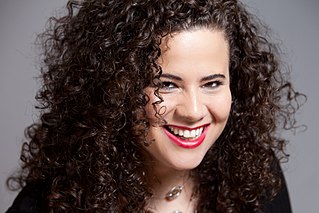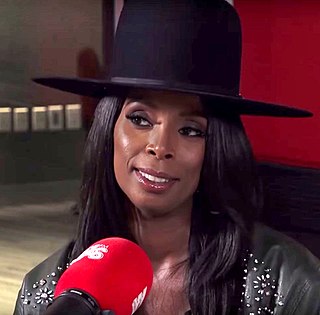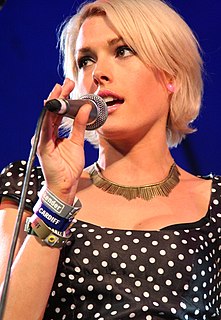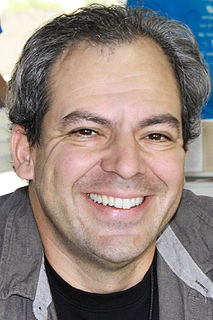A Quote by Andre Aciman
My love stories are about people who are reluctant to actualize what they so desperately want. They are timid, cautious, but eventually they dare to speak. My characters are not only hesitant; they are ambivalent about which way their libido flows: toward men or women? They are fluid in their sexuality, and this ambivalence says more about how we think about sex today than, say, Tinder. And this is a truly modern idea: Most of us don't know who we are sexually.
Quote Topics
Related Quotes
Men give love because they want sex. Women give sex because they want love. That's the difference between men and women. Ever notice how when we talk about our love lives, it's always about a man? Singular. All most of us want is one good man. But when men talk, it's about women. Plural. They want as many as they can get.
We need more female directors, we also need men to step up and identify with female characters and stories about women. We don't want to create a ghetto where women have to do movies about women. To assume stories about women need to be told by a woman isn't necessarily true, just as stories about men don't need a male director.
I always say about that movie [ Brokeback mountain], which I think maybe over time is more understood, is that this is about two people desperately looking for love. To be loved. And who were probably capable of it. And they just found it with someone of the same sex.that does not dismiss the fact that it is about, really, primarily, the first kind of very profound gay love story. Hopefully it can create an equality of an idea: that is, it's possible that you can find love anywhere.
I want a future where women and girls get to be the subject of their own sexuality, not the object of somebody else’s. That we are the main characters in our own play, not props in somebody else’s—which is how women’s sexuality is treated now. Whatever the outside attitudes about sexuality it’s always about somebody’s agenda for us, and I want a world where we can have our own.
Sex is more openly spoken about than 40, 50 years ago, and I think probably in comparison to a lot of bands - certainly other contemporary pop girl bands - we're certainly not as suggestive. We talk about sex in the way that we would to our friends. As a girl group, I think it was important not to avoid those sort of things either, because it's about confronting people's idea of what women should be talking about and how they should talk about it. There's no point in shying away from subjects like that, because they exist.
Lately, I'm thinking a lot about, in parenting and in my writing, how to create a language about sexism in a way that is attractive and approachable to this age group. I can teach my daughter about not talking to strangers but I can't teach her about how to succeed in a sexist world or even how to exist as a body in a sexist world. I want to begin by asking girls what they want and why they want it? Interrogating that. If this is the sex life you want, what makes you think you want that? I imagine the only way to authentically get at sexuality is by asking those questions.
When people say stuff to us casually in reviews, if they write about it in a condescending way with really gendered language, that's not really about me. It used to hurt my feelings more than it does now. That's not about us as a band or me as a person. That's about how you feel about women, and that's a societal thing.
Long before I became a feminist in any explicit way, I had turned from writing love stories about women in which women were losers, and adventure stories about men in which the men were winners, to writing adventure stories about a woman in which the woman won. It was one of the hardest things I ever did in my life.
Women are so often segregated to their sexuality, and how they appear. In fact, there's a lot of talk, even now, I think in most jobs this is true... people will say, when a woman rises to power, they ask, 'who did she sleep with?' You know, it couldn't possibly be about her acumen, it couldn't possibly be about her intelligence. It's got to be about her body, because that's how women get ahead.
I really don't see any men sitting in the corner office plotting to keep women out. All the men I know are actively trying to promote women, to get more women involved. These men have wives they care about; they have daughters they desperately care about. So I don't think it's fair to blame men - or I don't think it's accurate to blame men anymore.
Each of us is comprised of stories, stories not only about ourselves but stories about ancestors we never knew and people we've never met. We have stories we love to tell and stories we have never told anyone. The extent to which others know us is determined by the stories we choose to share. We extend a deep trust to someone when we say, "I'm going to tell you something I've never told anyone." Sharing stories creates trust because through stories we come to a recognition of how much we have in common.






































